Subtotal: $
Checkout-

The Artist of Memory
-

Poetry and Prophecy, Dust and Ashes
-

Valor
-

Editors Picks Issue 22
-

Carl Sandburg
-

Covering the Cover: Vocation
-

The Noonday Demon
-

Captivated by the First Church
-

Sometimes I Wince at the Weight of your Hand
-

Why We Work
-

Readers Respond: Issue 22
-

Buccaneer School
-

The Unchosen Calling
-

A Life beyond Self
-

Insights on Vocation
-

Monks and Martyrs
-

A Love Stronger than Fear
-

Now and at the Hour
-

Icon and Mirror
-

Dirty Work
-

Oh, to Weld!
-

Insights on Work
-

Carl Sandburg’s “Buffalo Dusk”
-

To-Do List
-

Mercenaries out of the Gate
-

Loneliness at College

I first heard about the digital currency Bitcoin while reporting at an Occupy Wall Street gathering in 2011, and I didn’t care. Who needed another kind of money, even an anarchist-sounding kind that needed no government to issue it? The better parts of the Occupy movement were about what people were doing without money: serving vast amounts of food, making art, building usable software, and having bottomless conversations.
Then, in early 2014, an old friend took me aside to tell me about this new thing happening. Like Bitcoin it was based on blockchain technology: a secure network under the control of its users, rather than any central authority. But while Bitcoin used a blockchain ledger to track the exchange of cryptocurrency, a white paper by a nineteen-year-old named Vitalik Buterin set out to do something more.
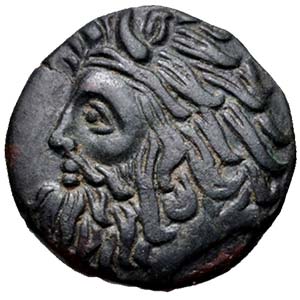
Ethereum wasn’t just about money. Where Bitcoin records mere transactions, Ethereum would record self-executing contracts. The prospect of virtual organizations set my mind racing about how the dreams of radicals and visionaries I’d been following could be made real in code. People would soon start coding in Ethereum things that used to be the purview of governments, like marriage contracts and secure identity systems. Trying new rules for society could be as easy as publishing a website. This could be a new laboratory for democracy, with endless, permissionless experiments in participation supplanting, from below, the tired, old in-person republics.
I finally met Buterin some months later. It was at the Bitcoin Center, a gaudy storefront a few doors down Broad Street from the New York Stock Exchange. He delivered a nearly hour-long monologue on the bit of game theory then keeping him up at night, barely moving except for the ballet of his bony fingers. Afterward we spoke in the street outside. He endured the chit-chat out of kindness, but such interactions were evidently draining and contrary to his nature, so I didn’t prolong it.
In place of elected governments we got venture capitalists.
That was a street I had gotten to know well during the Occupy protests. The memories haunted me: surely this whole blockchain thing could aspire to something better than being another contender vying for usurious riches in the Financial District. What if, instead of storming the kingdom of high finance, we set out to make networks where money matters less?
I wasn’t alone in longing for blockchain democracies, but before long the financiers drowned us out. The demographics of Bitcoin gatherings shifted from geeky, techie white guys to white guys with ties still half-tied from their day jobs at banks. In blockchain ledgers they saw the opportunity to bring derivatives and futures markets and automated trading out of their office towers into everyday life.
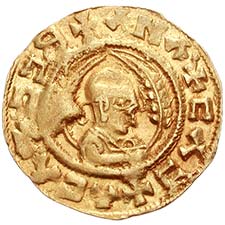
Before blockchains, I had never bothered with currency trading outside of border crossings. But during the great 2017 cryptocurrency bubble, I found myself obsessively watching the markets wobble, minute to minute, and placing bets as the value of the virtual tokens I’d obtained while reporting swelled from a night in a hotel room to a year’s salary. And then it was gone again. Initial coin offerings blew up and burst, taking fools (who were all of us) with them. The thing these blockchains have most effectively democratized so far is the soul-crushing subjectivity of the day trader.
Among the first pronouncements of Satoshi Nakamoto, the mysterious inventor of Bitcoin, one finds an urge to supplant political and bureaucratic institutions with economics. Nakamoto fretted about the trust wrongly invested in central banks and their political whims. In their place, Nakamoto offered a system with a fixed, predictable money supply. “The promise of crypto was freedom, not more politics,” writes one enthusiast in a recent blog post. The path? “100 Percent Pure Economics.”
This further elaborates the libertarian “Californian ideology” that has tended to dominate Internet culture, particularly in Silicon Valley. Internet pioneer John Perry Barlow famously declared in his 1996 rebuke to the governments of the world at Davos, “I declare the global social space we are building to be naturally independent of the tyrannies you seek to impose on us.” Instead, in place of elected governments we got venture capitalists. The market would be their rising polity.
What doesn’t fit on Blockchain’s cryptographic ledgers doesn’t fit into its world.
It might seem like an apotheosis of this view appears in Eric Posner and Glen Weyl’s 2018 book Radical Markets, a series of proposals for how our most thorny political problems might be solved if ideology gave way to transactions. It is an original, assumption-twisting work of social science fiction. For instance, the authors argue that enabling voters to literally buy votes, according to certain clever mechanisms, allows them to express their preferences more precisely. Rather than leaving migration to a bureaucratic labyrinth, it could become a new market for indentured servitude. All property, the book suggests, should be unownable and perpetually for sale at a self-assessed, taxable valuation. Just when it all starts to sound like a nightmarish apocalypse, Posner and Weyl contend that these more efficient markets will free up wealth and time and opportunity for non-economic sorts of human flourishing. All the transactions would fade into an automated background.
Since Congress is not likely to reorganize property rights anytime soon, the most plausible testing ground for such proposals may be the virtual, programmable territory of blockchains. Weyl, who holds posts at Microsoft and Princeton, has since joined with Vitalik Buterin to declare the promise of “liberation through radical decentralization.”
If philosophy was the queen of sciences in the ancient world and theology was in the Middle Ages, followed by a regency for physics, then economics wears the crown today. Other forms of inquiry derive value from the degree that they can be useful tributaries – imparting nuance, even correctives, to her models. Economics is the arbiter of good government, the constraint on what social possibilities are thinkable and sayable. According to the popular Freakonomics franchise, her methods are applicable to every aspect of life. Problems once mired in foolish political, social, and ethical concerns can finally be clarified, rationalized, and settled when translated into economic terms.
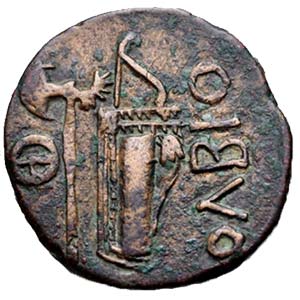
The insights and fascinations of such economic universalism are plenty, but they seem to depart from an older aspiration of economic thought: to disappear. John Maynard Keynes, for one, longed for a time when economists might “manage to get themselves thought of as humble, competent people, on the level of dentists.”
What if economics were to become a mainly solved problem, at work in the background, but not requiring much attention? It could be, for instance, like running water in wealthier parts of the world, like powered flight, or like polio.
Among people actually interested in solving the economic problem, there are two basic ideas for how to get there. One strategy seeks more equitable sharing of the world’s goods by political fiat, perhaps thanks to a workers’ revolution or benevolent dictatorship. The other calls for ratcheting up economics itself – churning out so much efficiency that the resulting production makes scarcity no longer a pressing concern.
The eclipse of economics is not merely an aspiration for the future. Hannah Arendt’s retelling of ancient Athenian life in The Human Condition casts economy as merely “a not too important part of ethics and politics.” The word oeconomica itself means “household management,” and that private affair is the guiding metaphor of Aristotle’s book that gave the discipline its name.
Classical Athens was a world in which scarcity existed, to be sure. Yet that scarcity was organized and orchestrated in such a way so as not to be a pressing question, particularly for the owning class that had the right to participate in politics. The women and slaves who felt scarcity most directly did not have such rights. Economics was the silent premise of politics, not its subject; to be trustworthy in politics, rather than forever suspect of corruption, one’s economics had to be already in order. Medieval scarcity, in turn, had its teeth dulled by precisely the spaces that banished economic logic – the common pasture, the common forest, the cathedral.
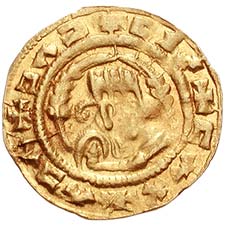
These are not necessarily pasts to which most of us would want to return. The economic achievements of recent centuries has midwifed wonders, including sufficient wealth and opportunity to curb slavery and the subjugation of women, though these evils remain far from abolished. Economics describes and orchestrates the conditions of possibility for our appliances, our skyscrapers, and our app stores like no other field can. As the philosopher André Gorz put it, “Industrial capitalism was only able to take off when economic rationality freed itself from all the other principles of rationality.”
Democracy has fallen victim to that economic rationality. Political theorist Wendy Brown, for instance, speaks of the “hollowing out” that befalls our political selves as more and more areas of our life become economized. The end of the Cold War, rather than ushering in a democratic-capitalist triumph, has delivered an ever more frail, reactive, unresponsive kind of politics, where principle has given way to spectacle. Even as the Dow Jones Industrial Average soars, resentment deepens. The metrics don’t represent us.
Blockchains could lend to economics even greater freedom, greater autonomy from other considerations, and greater power. Yet what doesn’t fit on their cryptographic ledgers doesn’t fit into their world. To trade politics for economics means giving up the parts of us that can’t be quantified. Economics still might be a problem to be solved, rather than the solution to all problems. Then, a better kind of politics could begin.
I didn’t encounter Vitalik Buterin again until this past March.Glen Weyl and a team of volunteers organized a conference in Detroit, RadicalxChange, based on the ideas about radical markets he, Buterin, and others had been developing. About four hundred people attended. (I was an invited speaker.) The Ethereum founder was by that point considerably wealthier but essentially the same gentle, brilliant, utterly mind-absorbed person I remembered. We shared a car one morning from the hotel to the venue, and as he thumbed messages into his phone I asked him what was front-of-mind at the moment. “Public goods provision,” he said.
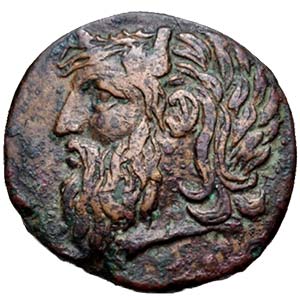
His reply was less cryptic than it sounds. Two nights earlier I’d been in another car, packed with Ethereum developers belting out their opinions on the matter. Their goal was to inscribe into future versions of Ethereum a mechanism that could automatically fund development of the core open-source software. In an essentially rational-choice economic system, they had to persuade self-interested stakeholders to contribute collectively to the common good. This was proving difficult. The coder boys complained that the Ethereum Foundation had become impossibly bureaucratic. They had to act like politicians, reinventing old-world partisan habits on Telegram, the ubiquitous messaging app among blockchain enthusiasts.
I admit I have a penchant for the farfetched.
The cryptocurrency bubble had burst and a “crypto winter” set in. The value of Ethereum’s tokens was now one-tenth of what they were worth in January 2018. The time of “Lambos” (frivolous nouveaux riches, piling up Lamborghinis) was over. Frantic rallying cries to “HODL” (hold your tokens and avert a sell-off) had given way to the call to “BUIDL” (build software that might actually be useful). Ethereum’s first run as a playground for unregulated magic money had been astonishingly inefficient, at least by a measure of non-scam productivity. The pretense to governance on blockchains was for the most part a widely acknowledged failure, at least so far. But some saw hope in precisely the domain of human activity this technology was intended to render obsolete: politics. According to an essay by a researcher at a blockchain investment fund, Outlier Ventures, “We aren’t just building economies, so economics alone won’t work. We are building global communities, so I’m afraid, we are going to need politics.”The rediscovery of the political came for Glen Weyl, too. As Zoë Hitzig, a Harvard graduate student, put it in a tweet to him in January, “Mechanism design needs to house – rather than displace – politics.” By then, her critique had folded into collaboration with Weyl and Buterin.
RadicalxChange, in the end, was better than an economics conference. It featured spoken-word poetry, film screenings, science-fiction writing exercises, and a Monopoly game night – the rules modified with one of Weyl’s mechanism proposals. A toddler practiced walking in the halls. Among the speakers were rapper and filmmaker Boots Riley and veteran Detroit activist Tawana “Honeycomb” Petty. The volunteer organizers drafted a mission statement calling for nonviolently supplanting capitalism with better markets, plus egalitarianism and community. Weyl hadn’t seen the statement before it went on the screen in Detroit, but I overheard him say afterward he loved it. In his main-stage speech, Buterin noted some lessons that the blockchain “cypherpunks” had learned over the years. One was that “money is a fundamentally social thing,” that making it work is “all very political.” The headline at a crypto-news website ran, “Vitalik Buterin Is Embracing a New Role: Political Theorist.”
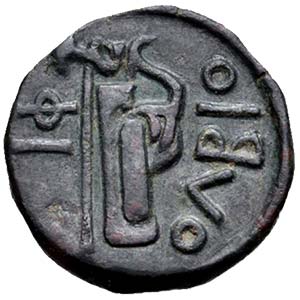
I admit I have a penchant for the farfetched. Blockchains and radical markets and their ilk are still far from infiltrating the prevailing way of things, if they ever will. Yet such fixations have lent me a close-up glimpse of the near future enough times that I keep at it. In following these particular Babel-like attempts to build up a virtual world from scratch, from white papers to billion-dollar valuations to subsequent collapse, I detect traces of ordinary goodness, and old-fashioned politics, still lurking. Even when we depart as far as we can imagine from our humanness as we know it, we find it there again, more unshakably than before.

Nathan Schneider is a journalist and professor of media studies at the University of Colorado Boulder. His most recent book is Everything for Everyone: The Radical Tradition that Is Shaping the Next Economy (Nation, 2018).
Already a subscriber? Sign in
Try 3 months of unlimited access. Start your FREE TRIAL today. Cancel anytime.



































